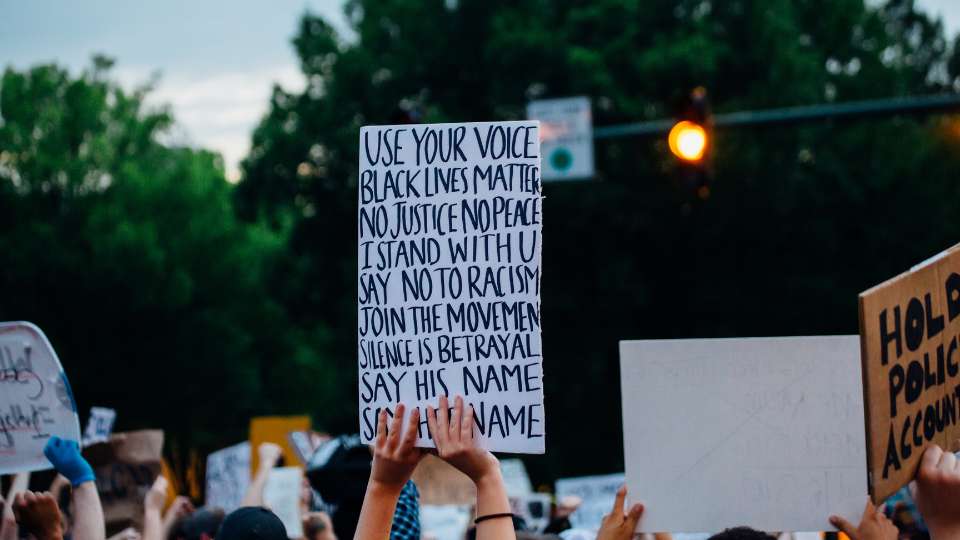Critical Social Issues in Society Today: Key Challenges, Emerging Trends, and Proven Solutions
The magnitude of Social issues in society today is shaping debates and driving movements across the globe. From climate change to systemic inequality, Understanding these top social issues is essential for fostering meaningful conversations and inspiring action. In writing this article, we aimed to explore the most pressing social issues—ranging from economic inequality and climate change to digital privacy and social justice—that shape our communities. Our goal (as Francis Lubega Children Foundation) is to foster informed discussions and inspire proactive efforts to build a more equitable and sustainable society. We hope that our insights and the solutions highlighted here empower you to engage in meaningful change and support initiatives that uplift vulnerable groups.
Current Trends Influencing Common Social Issues In Society Today
Several current trends are influencing the landscape of social issues, shaping how they are perceived and addressed. These trends include technological advancements, demographic shifts, and evolving social norms, each of which has significant implications for the challenges we face.
Technological advancements have transformed various aspects of our lives, from communication to healthcare. While these innovations have the potential to address social issues, they can also exacerbate existing inequalities. For example, the digital divide, or the gap between those who have access to technology and those who do not, can limit opportunities for education and economic advancement. Additionally, the rise of artificial intelligence and automation poses both opportunities and challenges for the workforce, potentially displacing jobs while creating new ones.
Demographic shifts, such as aging populations and increasing urbanization, also impact social issues. Aging populations in many developed countries place pressure on healthcare systems and social services, requiring adaptations to meet the needs of older adults. Urbanization, while driving economic growth, can lead to challenges such as housing shortages, increased pollution, and social inequality in cities. Addressing these trends requires forward-thinking policies and investments in infrastructure and services.
Evolving social norms and cultural attitudes are influencing how social issues are understood and addressed. For instance, growing awareness and acceptance of LGBTQ+ rights have led to significant legal and social advancements in many parts of the world. Similarly, movements for racial and gender equality have prompted critical conversations and policy changes aimed at reducing discrimination and promoting inclusion. These shifts highlight the importance of cultural change in driving progress on social issues.
5 Common Problems in Society Today
Issue 1: Economic Inequality
Economic inequality remains one of the most significant challenges facing societies today. The gap between the wealthy and the poor continues to widen, leading to disparities in access to resources, opportunities, and overall quality of life. This growing divide has far-reaching implications for social cohesion and economic stability, making it a critical issue that demands urgent attention.
One of the primary drivers of economic inequality is the uneven distribution of wealth. In many parts of the world, a small percentage of the population controls a significant portion of the wealth, while the majority struggle to make ends meet. This concentration of wealth often leads to unequal access to education, healthcare, and other essential services, perpetuating a cycle of poverty and disadvantaging future generations.

Addressing economic inequality requires a multifaceted approach that includes policy reforms, social programs, and community initiatives. Governments play a crucial role in implementing progressive taxation, increasing minimum wages, and ensuring access to quality education and healthcare for all. Additionally, grassroots organizations and activists are essential in advocating for fair labor practices and supporting marginalized communities. By working together, we can take meaningful steps towards bridging the wealth gap and creating a more equitable society.
Issue 2: Climate Change and Environmental Concerns
Climate change and environmental degradation are among the most urgent threats facing our planet. The impact of human activities, such as deforestation, pollution, and the burning of fossil fuels, has led to a significant increase in greenhouse gas emissions, contributing to global warming and climate instability. These changes have dire consequences for ecosystems, biodiversity, and human health, making it imperative that we address these issues with urgency and determination.
One of the most visible effects of climate change is the increase in extreme weather events, such as hurricanes, floods, and wildfires. These events not only cause widespread destruction and loss of life but also disrupt communities and economies, particularly in vulnerable regions. Moreover, rising sea levels threaten coastal cities and islands, potentially displacing millions of people and causing significant economic and social upheaval.
To combat climate change, it is essential to transition towards a more sustainable and resilient future. This involves reducing carbon emissions through the adoption of renewable energy sources, such as solar and wind power, and promoting energy efficiency in homes and businesses. Additionally, protecting and restoring natural ecosystems, such as forests and wetlands, can help mitigate the effects of climate change by sequestering carbon and preserving biodiversity. By taking collective action at both the local and global levels, we can work towards a more sustainable and healthy planet for future generations.
Issue 3: Digital Privacy and Misinformation
Today, privacy and misinformation have emerged as critical social issues that affect individuals and society at large. The rapid advancement of technology has transformed the way we communicate, access information, and conduct our daily lives. However, these advancements have also given rise to new challenges, such as the erosion of privacy and the spread of false information.
Digital privacy concerns stem from the increasing collection and use of personal data by corporations and governments. From social media platforms to online shopping, our digital footprints are constantly being tracked, often without our explicit consent. This data can be used for targeted advertising, surveillance, and even identity theft, raising significant ethical and security concerns. Protecting digital privacy requires robust regulations, transparency from companies, and increased awareness among users about data protection practices.
Misinformation, or the spread of false or misleading information, is another pressing issue in the digital landscape. Social media and other online platforms have made it easier than ever for misinformation to spread rapidly, often with harmful consequences. This can undermine public trust in institutions, fuel social division, and even endanger public health, as seen with the proliferation of false information during the COVID-19 pandemic. Combating misinformation requires a multifaceted approach, including promoting media literacy, fact-checking, and holding platforms accountable for the content they host.
Issue 4: Racial and Social Justice
Racial and social justice remain critical issues that require ongoing attention and action. Despite progress in some areas, systemic discrimination and inequality continue to affect marginalized communities around the world. Addressing these issues involves confronting deeply ingrained prejudices and working towards creating a more inclusive and equitable society.
Racial discrimination manifests in various forms, from overt acts of racism to more subtle, institutional biases that perpetuate inequality. For example, disparities in education, employment, and housing opportunities often disproportionately affect people of color, limiting their ability to achieve economic and social mobility. Additionally, interactions with the criminal justice system can be heavily influenced by racial biases, leading to higher incarceration rates and harsher sentencing for minority groups.

Social justice encompasses a broader range of issues, including gender equality, LGBTQ+ rights, and disability rights. Many marginalized groups face intersecting forms of discrimination, compounding the challenges they experience. Achieving social justice requires dismantling oppressive systems and creating policies and practices that promote equity and inclusion. This can involve advocating for legal protections, increasing representation in positions of power, and fostering a culture of respect and understanding.
Community organizing and activism play a vital role in advancing racial and social justice. Grassroots movements, such as Black Lives Matter and MeToo, have brought these issues to the forefront of public consciousness, driving meaningful change and holding institutions accountable. By supporting and amplifying the voices of marginalized communities, we can work towards a society that values and upholds the dignity and rights of all individuals.
Issue 5: Access to Quality Education
Access to quality education is a fundamental human right and a crucial determinant of individual and societal well-being. However, millions of children and adults around the world still lack access to adequate educational opportunities, perpetuating cycles of poverty and inequality. Ensuring that everyone has access to quality education is essential for fostering social mobility, economic development, and a more equitable society.
Several factors contribute to the lack of access to quality education. In many developing countries, inadequate infrastructure, insufficient funding, and a shortage of trained teachers hinder the delivery of effective education. Additionally, socio-economic barriers, such as poverty and gender discrimination, can prevent children from attending school or completing their education. In some regions, conflict and political instability further exacerbate these challenges, disrupting educational systems and displacing students.
To address these issues, it is essential to invest in education at all levels, from early childhood to higher education. This includes building and maintaining school infrastructure, providing adequate resources and support for teachers, and implementing policies that promote inclusive and equitable education. Additionally, leveraging technology can help bridge educational gaps, particularly in remote or underserved areas, by providing access to digital learning tools and resources.
Community and international efforts are also crucial in promoting access to quality education. Organizations such as UNICEF and UNESCO work to improve educational outcomes by supporting policy development, providing funding, and implementing programs that address the specific needs of marginalized communities. By prioritizing education and working together, we can ensure that every individual has the opportunity to reach their full potential and contribute to the betterment of society.
Potential Initiatives to Address Problems with Society
Addressing the complex social issues we face today requires innovative solutions and collaborative initiatives. These efforts must be multifaceted, involving governments, businesses, non-profit organizations, and individuals working together towards common goals.
Policy reforms are essential for creating systemic change. Governments play a crucial role in enacting legislation that addresses social issues, such as implementing progressive taxation to reduce economic inequality, enacting environmental regulations to combat climate change, and ensuring legal protections against discrimination. Additionally, policies that promote access to quality education and healthcare are vital for fostering social mobility and well-being.
Community-based initiatives and grassroots movements are equally important in driving social change. Local organizations and activists often have a deep understanding of the specific needs and challenges faced by their communities. By mobilizing resources and advocating for change, these groups can address issues such as economic inequality, environmental sustainability, and social justice at the local level. Supporting and amplifying these efforts can lead to meaningful and lasting impact.
Technological innovations also offer promising solutions to social issues. For example, renewable energy technologies can reduce carbon emissions and promote sustainability, while digital learning platforms can provide access to education for underserved populations. Additionally, data analytics and artificial intelligence can be leveraged to address social challenges, such as improving healthcare outcomes and enhancing public safety. However, it is essential to ensure that these technologies are implemented ethically and equitably, to avoid exacerbating existing inequalities.
Frequently Asked Questions (FAQs) About the Article
-
Qn1. What are the main social issues discussed in the article?
The article explores significant social problems within society, including economic inequality, climate change and environmental concerns, digital privacy and misinformation, racial and social justice, and access to quality education.
-
Qn2. How does economic inequality impact society?
Economic inequality leads to disparities in access to resources and opportunities, affecting overall quality of life and contributing to social unrest and reduced economic growth.
-
Qn3. What solutions are proposed for combating climate change?
The article suggests transitioning to renewable energy sources, enhancing energy efficiency, and protecting natural ecosystems as key strategies to mitigate climate change effects.
-
Qn4. Why is access to quality education emphasized as a critical issue?
Quality education is vital for individual and societal development, breaking cycles of poverty, and promoting informed and engaged citizenship.
-
Qn1. How can individuals contribute to addressing these social issues?
Conclusion and Call to Action
The social issues we face today are complex and multifaceted, requiring a comprehensive and collaborative approach to address them effectively. From economic inequality to climate change, digital privacy to racial and social justice, and access to quality education, these challenges are interconnected and demand our collective attention and action.
By understanding these issues and the trends that influence them, we can develop innovative solutions and initiatives that promote equity, sustainability, and well-being. It is essential for governments, businesses, non-profit organizations, and individuals to work together, leveraging their unique strengths and perspectives to create meaningful and lasting change.
As we seek for ways to mitigate these issues, we must remain committed to fostering compassion, collaboration, and understanding. By prioritizing the needs and rights of marginalized communities, advocating for policy reforms, supporting grassroots movements, and embracing technological innovations, we can work towards a more equitable and sustainable world.
We encourage you to engage with these social issues, educate yourself and others, and take action in your communities. Whether through volunteering, advocating for policy changes, or supporting organizations that address these challenges, your contributions can make a difference. Together, we can create a future where everyone has the opportunity to thrive and where social justice and sustainability are at the forefront of our collective efforts.
To learn more about Francis Lubega Children Foundation and our initiatives or to get involved, please visit our Contact Us page. If you’re inspired to contribute, consider making a donation through our Donate page. Together, we can create meaningful change and offer hope to those who need it most.




